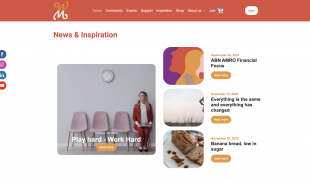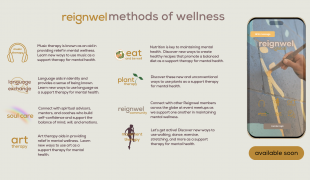- 6920
- 467
- 5
- 12
- 0
- Help Ukraine
About the solution
Students’ welfare is endangered because of stress and struggles related to financial issues or the workload of their courses mixed with jobs or extra-curricula activities. After a student at the University of Manchester’s School of Physics and Astronomy committed suicide, Dr Andrew Markwick, came up with StudentCRT, a system that allows lecturers and other university staff to view and amend different data on the students that related to their wellbeing.
The system is meant to analyse some of the signs that may show a student is at risk. For instance, non-attendance, a drop in grades or failure to submit work. Indeed, these problems viewed in isolation across several different classes can be easily missed, but together they can paint a picture of a student who is struggling with classes or is going through something in his/her personal life.
The StudentCRT allows to see data in real-time and update it. The system maintains a score for each student, the score is then used to identify ‘at risk’ students who can then be followed by personal tutors and welfare officers. “It’s about identifying those students and having a conversation with them as soon as possible,” Dr Markwick says.
“My area of expertise isn’t in mental health or wellbeing but I felt I could help in other ways use my own skillset. So I decided to look at the way we use student data and figure out a better way to utilise it so we can identify at risk individuals before things escalate,” Dr Marwick said.
The initial trial in the School of Physics and Astronomy was very successful. Geraldine Garrabet, Student Support Officer said: “We’re now able to identify students we need to follow-up personally almost as soon as problems start to manifest themselves.”
The software reached the final of Pitch@Palace competition, founded by The Duke of York. In 2018, Dr Markwick launched a start-up company, Third Floor Systems, supported by the University’s innovation company UMI, with the aim of making the product available also to other universities.
There is potential to adapt the software also to large organisations.
Adapted from: https://www.computerweekly.com/feature/Universities-use-data-analytics-t...
https://www.manchester.ac.uk/discover/news/new-software-could-help-ident...
More information: https://thirdfloor.ltd/
这些解决方案不应包括使用药物,化学品或生物制品(包括食品);创伤性设备;冒犯性的,商业或内在危险的内容。该解决方案未经医学验证。请谨慎进行!如果您有任何疑问,请咨询健康专家。
DISCLAIMER: This story was written by someone who is not the author of the solution, therefore please be advised that, although it was written with the utmost respect for the innovation and the innovator, there can be some incorrect statements. If you find any errors please contact the patient Innovation team via info@patient-innovation.com
-
-
277
-
0
-
2767

Astrid and Marianne created platform Widows & Widowers - to give strength and support after both becoming widows.
COMMUNICATION: Communicating, whether by speaking, listening, or other means
CAREGIVING
SLEEP FUNCTION: Resting
Social interaction
Depressive Disorders (Major Depression, Childhood Depression, Postpartum Depression)
Website
In Person service
Promoting self-management
Promoting inclusivity and social integration
Enhancing Mental Health
Preventing (Vaccination, Protection, Falls, Research/Mapping)
Raise awareness
Caregiving Support
General and Family Medicine
Psychiatry
Netherlands
-
-
-
307
-
0
-
2879

Giel Branker creates Reignwel Global- AI platform that match users with mental health resources and provides support.
COMMUNICATION: Communicating, whether by speaking, listening, or other means
Social interaction
Depressive Disorders (Major Depression, Childhood Depression, Postpartum Depression)
App (Including when connected with wearable)
Website
Social Media
Strategy/Tip
Online service
AI algorithm
Enhancing health literacy
Enhancing Mental Health
Preventing (Vaccination, Protection, Falls, Research/Mapping)
Raise awareness
Caregiving Support
Psychiatry
Portugal
-
-
-
435
-
0
-
4718

Now&Me - Two college friends create an app to promote mental well-being
COMMUNICATION: Communicating, whether by speaking, listening, or other means
CAREGIVING
Depressive Disorders (Major Depression, Childhood Depression, Postpartum Depression)
App (Including when connected with wearable)
Website
Anxiety
Difficulty concentrating or making decisions
Social withdrawal or isolation
Depressed Mood
Irritability or anger outbursts
Restlessness or feeling slowed down
Loss of interest or pleasure in activities (anhedonia)
Panic attacks
Difficulty controlling impulses
Racing thoughts
Feelings of guilt or worthlessness
Suicidal thoughts or behaviors
Obsessive thoughts or compulsive behaviors
Excessive or uncontrollable worry about health (hypochondria)
Fatigue
Sleep disturbances
Enhancing health literacy
Promoting self-management
Manage Medication
Managing Neurological Disorders
Enhancing Mental Health
Preventing (Vaccination, Protection, Falls, Research/Mapping)
Raise awareness
Caregiving Support
Child and Adolescent Psychiatry
General and Family Medicine
Pediatrics
Psychiatry
India
-
 zh
zh